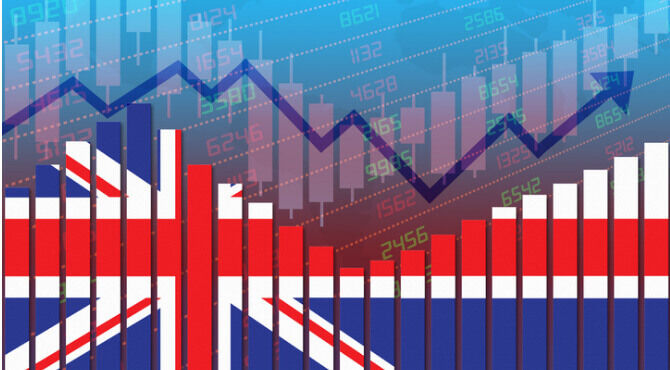UK growth at 81-year high in 2021
The UK economy bounced back in 2021 from the worst effects of the pandemic with better-than-expected GDP of 7.5 per cent growth, the highest annual figure since the start of World War Two.

Related reading from Relocate Global
- Job data suggests global recruitment bonanza
- Campaign aims to lure researchers to the UK
- "Levelling up" plan aims to boost UK regions
Supporting growth through Covid-19
Darren Morgan, Director of Economic Statistics at the ONS, described last year's growth as “pretty healthy”, adding: "Despite December's setback, GDP grew robustly across the fourth quarter as a whole with the NHS, couriers and employment agencies all helping to support the economy."Overall, GDP in December was in line with its level in February 2020, before Covid-19 struck, while in the fourth quarter as a whole, it was slightly below that of Q4 in 2019."Chancellor of the Exchequer Rishi Sunak said the government's £400 billion economic support package during the pandemic had resulted in a "remarkably resilient" economy."I'm proud of the resolve the whole country has demonstrated, and proud of our incredible vaccine programme, which has allowed the economy to stay open," he said."We're continuing to help the economy rebuild through our Plan for Jobs, boost for business investment and support for households with the cost of living."Cost of living and inflationary pressures threaten further growth
However, Suren Thiru, Head of Economics at the British Chambers of Commerce (BCC), said although 2021 represented a record year for the UK economic growth, "this more reflects data distortions caused by the comparison with the historic collapse in activity in 2020, than the reality on the ground".He added: “The UK economy is facing a materially weaker 2022 as the crippling burden of rising inflation, soaring energy bills and higher taxes on consumers and businesses dampens activity, despite a temporary boost from the lifting of Plan B restrictions.“Urgent action is needed to limit the unprecedented surge in costs facing businesses, including financial support for those struggling with soaring energy bills and delaying the impending National Insurance rise. Firms need financial headroom to keep a lid on prices and power the recovery.”'Tax relief, skills and regulatory reform will unlock growth'
Barret Kupelian, Senior Economist at PwC UK, described growth as “less flattering” when compared to the average over the two years since the pandemic struck, with countries such as the US and France having achieved greater overall increases.Kitty Ussher, Chief Economist at the Institute of Directors, expressed the hope that subsequent data would show the economy returned to growth in January, after Omicron the dip in December.“The story of December was one of cancellations and caution, as consumers jettisoned their plans to avoid bringing Covid home for Christmas," she said."Today’s data shows the impact of this screeching halt to festive cheer, with consumer-facing services down three per cent in December compared to the previous month."We know from our own data, however, that caution over Omicron among business leaders eased in January, so we are hopeful that next month’s data will see growth rising again.”Rain Newton-Smith, Chief Economist at the Confederation of British Industry (CBI), said that while the worst seemed to be over after the December lockdowns, companies were still grappling with supply shortages and cost pressures.“We’re caught in a low-growth trap, and the only way to get out is a relentless focus on competitiveness," she said. “A 100 per cent, permanent investment (tax) deduction can trigger a chain reaction of business spending across the whole economy. And a future-focused approach to regulation and skills will be vital to help us avoid another lost decade of growth.”Read more news and views from David Sapsted.
Subscribe to Relocate Extra, our monthly newsletter, to get all the latest international assignments and global mobility news.Relocate’s new Global Mobility Toolkit provides free information, practical advice and support for HR, global mobility managers and global teams operating overseas. Access hundreds of global services and suppliers in our Online Directory
Access hundreds of global services and suppliers in our Online Directory
©2024 Re:locate magazine, published by Profile Locations, Spray Hill, Hastings Road, Lamberhurst, Kent TN3 8JB. All rights reserved. This publication (or any part thereof) may not be reproduced in any form without the prior written permission of Profile Locations. Profile Locations accepts no liability for the accuracy of the contents or any opinions expressed herein.
































